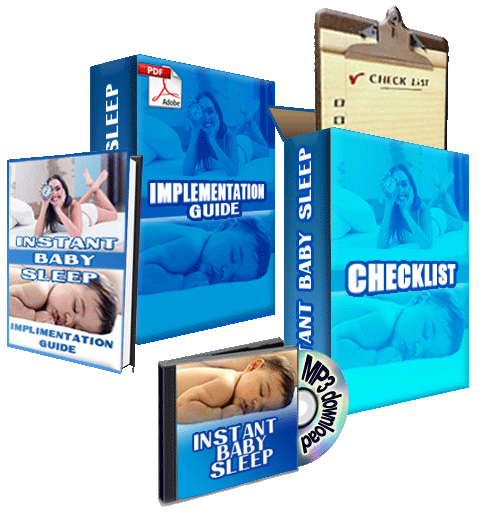The Best Routine To Have You Sleeping At Last
One of the key elements to ensuring a good sleep that is both consistent and restful is developing a routine.
We have put forward a few key elements to developing a perfect sleep routine for you:
- Your routine:
Let your mind and body know when it’s time for bed. We are all creatures of habit and we encourage you to develop a routine at a set time every time you are going to bed. For example, at 9:00 p.m. turn off the television; brush and floss your teeth; set your alarm; turn on the heat or air-conditioning; turn off the lights; listen to some light music for a few minutes if you are still tense; wind down and clear your mind and; sleep. In other words, get into a regime that works for you and repeat it over and over, tweak it over time and see what works for you. Tell your mind and body this is your message to them that it is time for bed and a good sleep. You will be amazed by the results.
We will now delve a little deeper into some more elements to ensure your sleep routine can be a complete success.
- Keep consistent hours:
Since most of us were children we have grown accustomed to routines, for example food as a toddler may have come at 7:00 a.m., 12:00 noon, an afternoon snack at 3:00 p.m. and dinner at 7:00 p.m. Your sleep is no different. You should train your body to keep consistent hours for sleep;
- Don’t oversleep:
If you lose sleep one night, do not try to compensate by adding hours in the morning. This only results in your body’s clock being interrupted;
- Don’t nap:
Unless your doctor orders you to nap, don’t do so. This is another bad habit that leads to your sleep routine being adversely affected;
- Wind down:
Do not get into any conversations that will get you worked up before bed. For many of us that will mean no politics! Have some quiet time and perform a very relaxing ritual, perhaps a good book, some classical music, a nice light comedy on the television, but definitely something to calm your mind. Have a warm bath, perhaps a soothing bubble bath where you can do nothing but relax after a tough day;
- Lighting
Your lighting in your room should be significantly dimmed or off. To keep it simple we will just touch on the science behind this. The body produces a chemical called melatonin which induces sleep. This chemical is released more readily by our pineal gland (located in our brain) when our eye’s optic nerve sends a signal that lighting has diminished or has been removed. Thus darkness enhances your sleep experience and ability to get a good night’s sleep.
- A writing pad:
Especially for those of us with that imagination that is constantly in overdrive we encourage you to sleep with a pad and a pencil at your bedside. When your mind starts racing, jot it down and try to put it out of your thoughts, get into the relax mode and get to sleep;
- Exercise:
This is a fundamental technique to get your mind, body and spirit in the right shape. Exercise can help you in areas of weight loss, blood circulation, muscle growth and longevity of your physique to just name a few. On top of all this it can help you get a good rest as well. We encourage you to check with your doctor and once cleared get into a regime of fitness, there is absolutely no way you will regret it. Make it part of your lifestyle like watching the news and that football game.
Do what pleases you in the area of exercise, from running to walking to going to the gym or just getting a pair of dumbbells or resistance bands. Do what fits your lifestyle and budget. If you suffer from a lack of sleep often and do not exercise try to incorporate a small amount of stretches and limbering exercise two hours before bed, see if it assists you and you can escalate the exercise to greater heights as your body allows.
While we can be described as controversial in the two following areas, we encourage you to give our recommendations at least a two month trial. Take a before and after look at two areas for us, your sleep to see if it is better and your disposable income to see if you find that you now have more funds for more important long term goals.
- Caffeine – Cut out or cut down
The stigma of the modern human being is a picture of them all walking down the road with disposable cup of coffee or tea in hand. We have become addicted to a lifestyle dictated by mass media and some excellent marketing. We feel obligated to spend our hard earned money to be part of the mass purchasing crowd at signature coffee chains. The end result is a hit on our pockets in the long term as well as adverse effects on our sleep.
We encourage you to develop a cold turkey approach to kicking the destructive habit of too much coffee. Have a cup at home in the morning with a quick breakfast and a read of the paper then no more for the rest of the day. Opt for a cup of caffeine free tea stored in your desk drawer and bought at the neighborhood grocer. The same warm satisfaction will be found over a short time from this alternative. If you say you need caffeine it’s simply not true, do some stretches, wash your face, take a walk, (remember your sleep routine). With sound sleep habits you can get rid of this false sense of security in caffeine.
- Alcohol Cut down or cut out
Many of us are under the false belief that alcohol helps us relax and get a better sleep. This is wrong as this substance has been described as a depressant and can lead to serious long-term negative effects. If you must consume alcohol we encourage you to do so with about three to four hours before your bedtime. Alcohol consumed to near to bed can lead to shallow and uneasy sleep and you wake up much more tired than before. Sound familiar? Make the change and smile your way to a sharper thinking, healthier you.
- Avoid Sleeping pills
Pills loaded with artificial chemicals are a quick fix to an issue that will occur again and again. We encourage you not to take sleeping pills unless specifically prescribed to you by your trusted physician. Furthermore, even if prescribed we encourage you to seek a second opinion. Treat your sleep deprivation as serious as you would a major illness and seek the best solution for you long-term. Many sleeping pills out there lead to decreased reaction time, dependence on them by the individual and even short-term amnesia. You should seek out all alternatives before going the route of any pills.


 Everyone in today’s world would have had to endure a flight sometime in their lives. It may vary from the one hour short hauls to the medium five hours to the nineteen hours plus. While on board you may want a bit of relaxation and perhaps even some sleep time on board. After all for the time being most airlines have not introduced the technology to let all the gadgets work so this may be counted as valuable stress free time.
Everyone in today’s world would have had to endure a flight sometime in their lives. It may vary from the one hour short hauls to the medium five hours to the nineteen hours plus. While on board you may want a bit of relaxation and perhaps even some sleep time on board. After all for the time being most airlines have not introduced the technology to let all the gadgets work so this may be counted as valuable stress free time.
Follow Us!